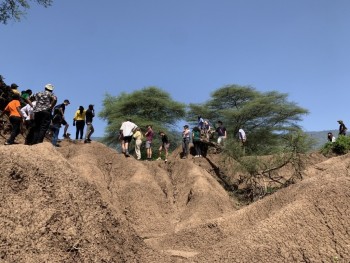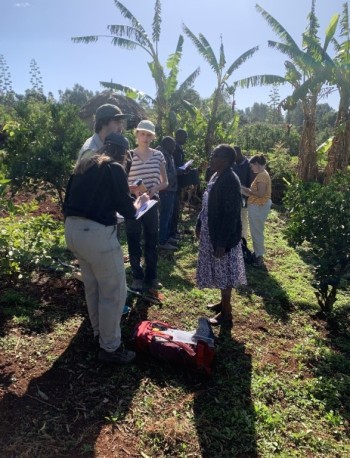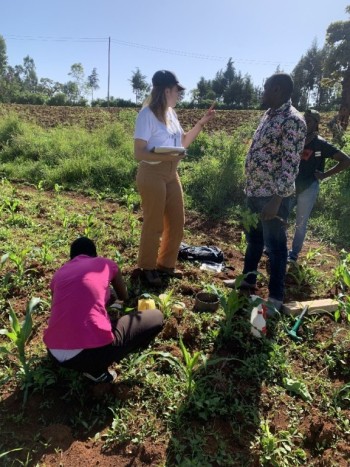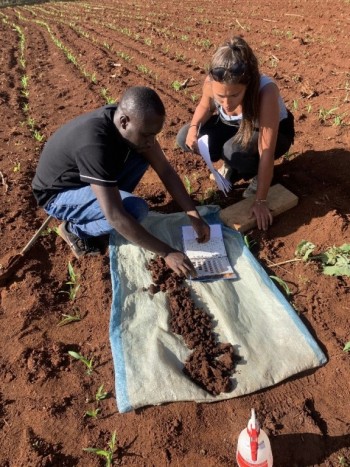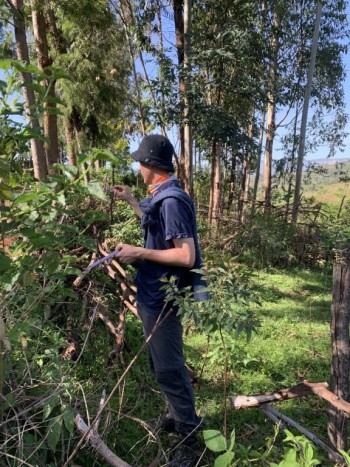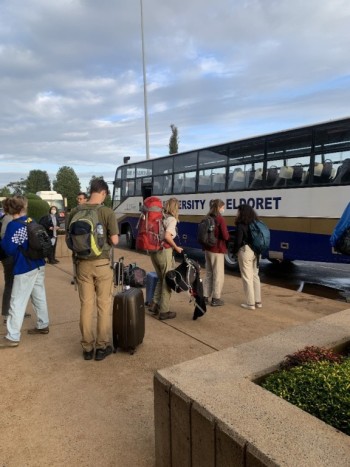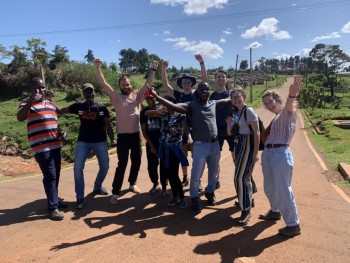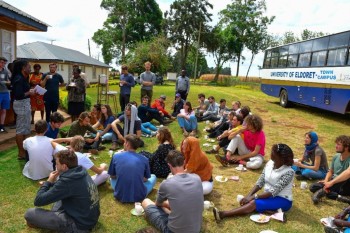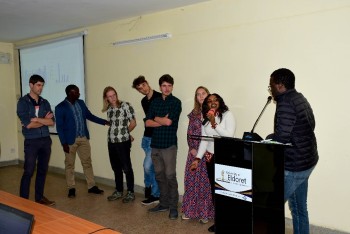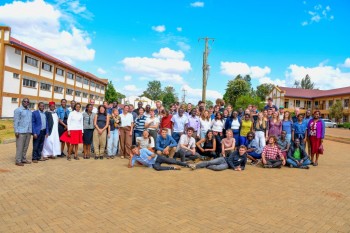The ADCLIM project which will run from 2022 to 2027 is funded by VLIR-UOS: Cooperation between Belgian Universities and universities in the South. The partners include KU Leuven-Belgium, Swiss Federal Institute of Technology (ETH) Zurich, Switzerland, International Institute of Tropical Agriculture (IITA), Jaramogi Oginga Odinga University of Science and Technology (JOOUST). The project PI is Dr. Abigael N. Otinga from the School of Agriculture and Biotechnology, Department of Soil Science.

ADCLIM in its second year of implementation envisages the co-creation of agroecology-based strategies for climate change adaptation, using the UoE’s Outreach Centre as an entry point. We take cognisance of the degradation of landscapes and explore the possibilities of adoption of Agroecology in transitioning to sustainable food systems. In this project exploratory studies using modelling and data from long-term field experiments identify promising technology options that are refined, tested and validated in both short term and long term on-farm field trials through three postgraduate students (One MSc. in Soil Science, One MSc. in Agricultural Extension Education and one PhD in Soil Science).
On farm short term trials are scheduled to begin in the long rains of 2024 while the long-term experiments were designed between 20 years ago by the International Institute of Tropical Agriculture (IITA) to explore the sustainability of several Integrated Soil Fertility Management (ISFM) options including the combination of organic and inorganic inputs, improved germplasm and local adaptation geared towards improving efficiency of inputs, risk spreading and preserving biodiversity. These options mirror several elements of agroecology.
In ADCLIM, the co-created knowledge is the cornerstone for capacity building with relevant stakeholders within the community, especially targeting youth in agriculture. This involves short courses for farmers, scientists of various disciplines, and agricultural extension officers. The short courses are organised and implemented by the UoE’s Outreach Centre to ensure a continuous engagement of the university in the communities. As an integrative exercise on the project, a two-week field course is also embedded in selected MSc programs. In this course, students have to resort to a multidisciplinary approach allowing them to tackle the interconnected societal challenges imposed by climate change. This course builds on previous editions funded under another VLIR-UOS Programme titled ‘Research-Based Education for Sustainable Rural Development' that was funded between 2018 and 2022.
The multidisciplinary approach, coupled with a hands-on training and multicultural dimension exerts a direct impact on the sector since UoE agricultural based graduates are commonly absorbed in extension services, agricultural research institutions, academia, outreach programmes and policy. Teaching & research at UoE is strengthened through the project by (i) an enriched hands-on approach and by (ii) incorporating topics of agroecology and climate change in both the BSc. And MSc. curricula and the short course training at the Outreach Centre. ADCLIM envisages that this will not only attract students to the agriculture-based BSc. but also enhance the relevance of MSc. and PhD Programmes.

